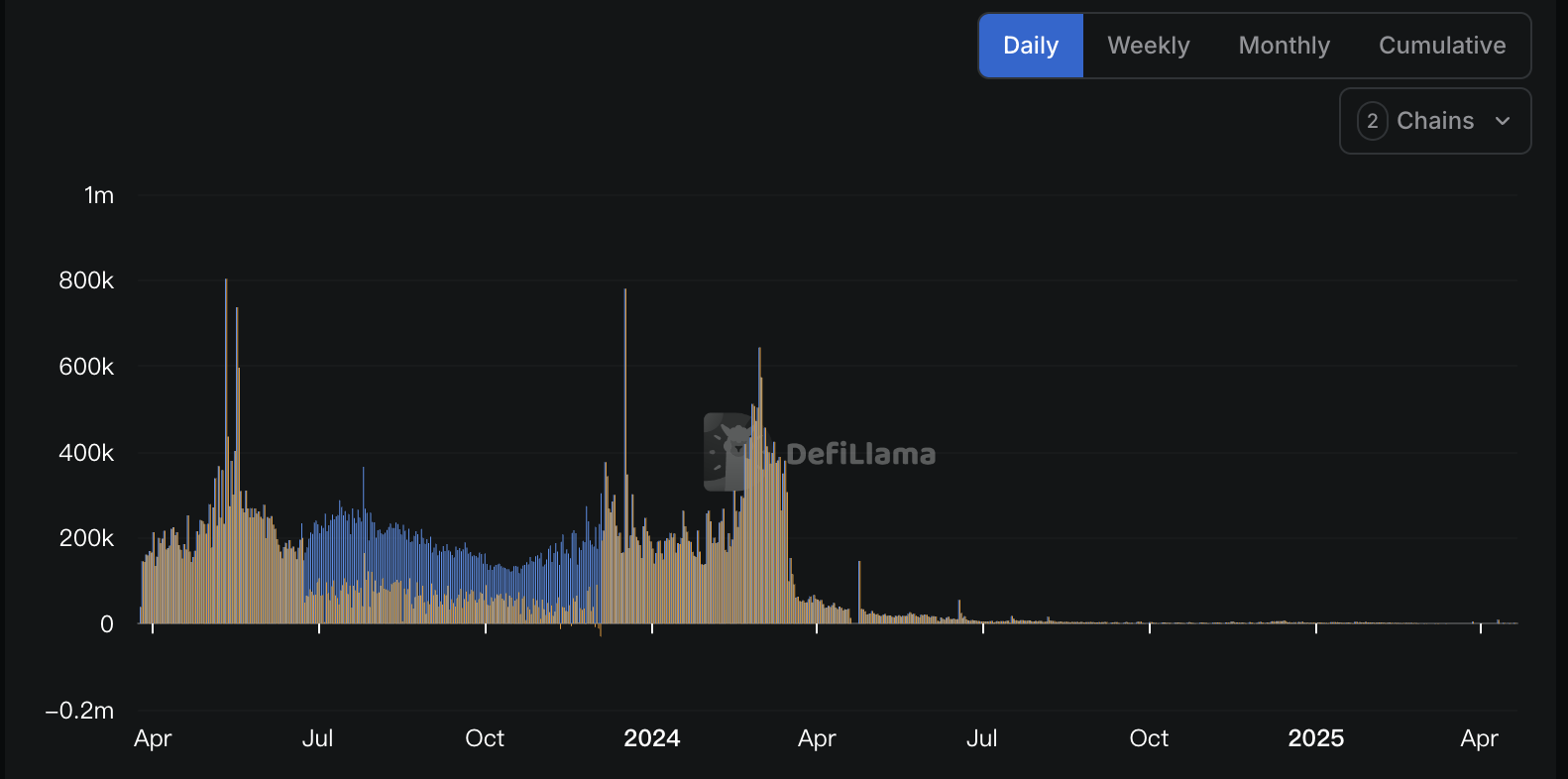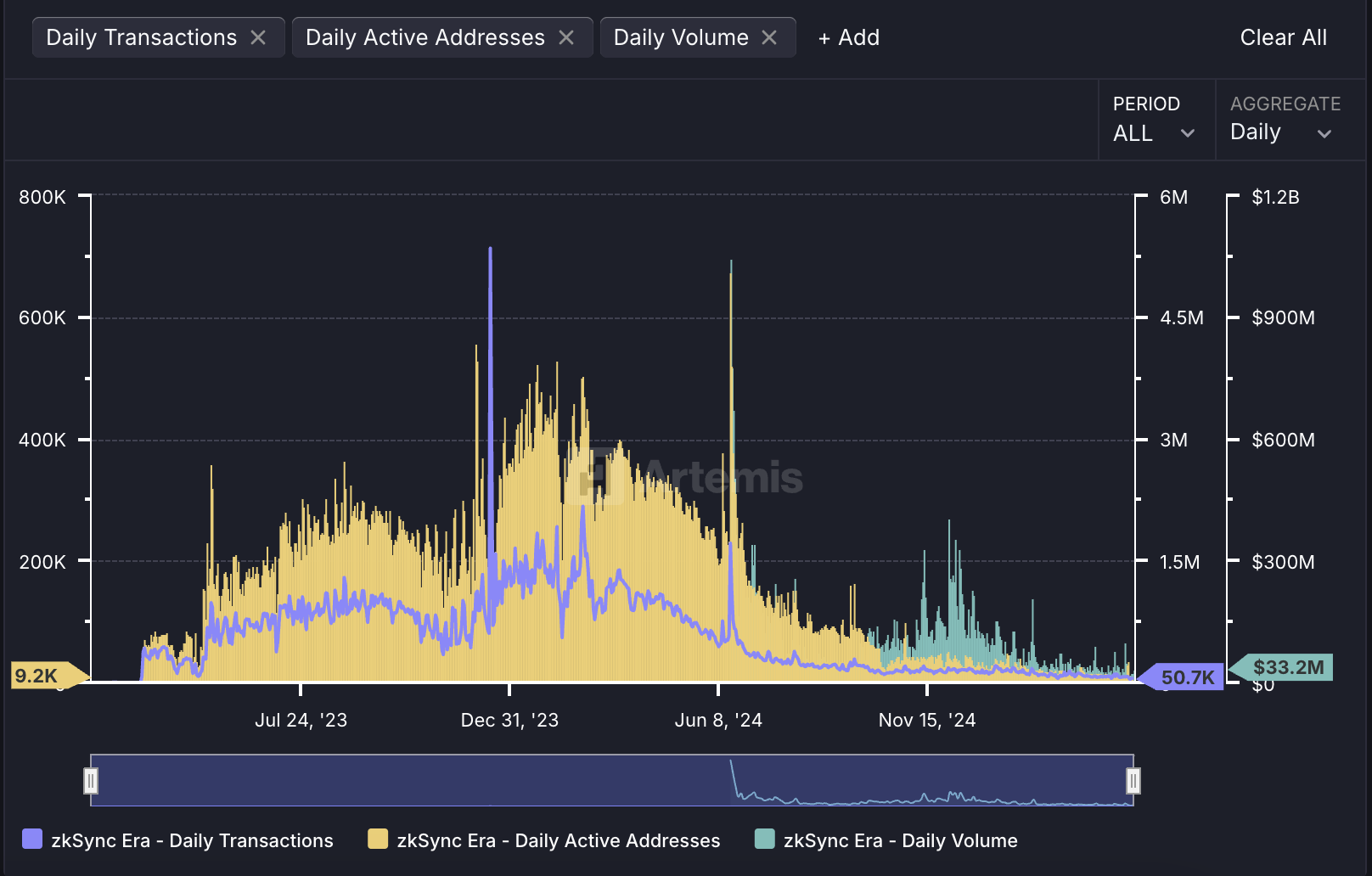L2 project ZKsync is still reeling from a trust crisis triggered by the hacking of its airdrop distribution contract, and its developer Matter Labs is now embroiled in legal disputes and public controversy due to allegations of intellectual property theft.
Written by: Nancy, PANews
One wave has not yet settled before another rises. Recently, the trust crisis caused by the hacking of the airdrop distribution contract of the L2 project ZKsync has not calmed down, and its developer Matter Labs is now involved in legal disputes and public controversy due to allegations of intellectual property theft.
Matter Labs Sued by BANKEX for Misappropriating Technology and Taking Core Development Team
On March 19 of this year, BANKEX CEO Igor Khmel and his affiliated entities filed a lawsuit in the New York State Supreme Court, accusing former employees Alexandr Vlasov and Petr Korolev of misappropriating BANKEX's core technology during their tenure and privately founding the competing company Matter Labs, thereby securing over $450 million in venture capital.
LinkedIn profiles show that Vlasov is currently the head of R&D at Matter Labs, having served for 6 years and 8 months, primarily responsible for preparing the Plasma release for the Ethereum mainnet and developing a GPU-based zkSNARK prover for the next-generation Plasma protocol. Prior to this, Vlasov served as the chief research scientist at the BANKEX Foundation from March 2018 to January 2019, leading the implementation of Plasma and developing a complete set of tools, including backend systems and smart contracts, to support the practical operation of Plasma. Another key figure, Korolev, is currently the founder of blockchain security company OXORIO; he served as co-founder and operations head of Matter Labs from August 2018 to January 2020. Before joining Matter Labs, Korolev was the CEO and co-founder of the BANKEX Foundation, leading the establishment of the organization’s R&D system, with Plasma development being one of the four core projects he participated in and promoted during his tenure.
The lawsuit reveals that as early as 2017, Ethereum co-founder Vitalik Buterin approached BANKEX to commission the development of software related to "Plasma," which was then seen as a key technology to enhance Ethereum's scalability. At that time, Vlasov and Korolev, as BANKEX employees, led the specific development of the project, with BANKEX providing funding, manpower, and community resources, and the related results were open-sourced on GitHub and showcased at multiple developer conferences, receiving public recognition from Vitalik.
However, according to the lawsuit documents, in February 2018, while still an employee of BANKEX, Vlasov created a new GitHub account named "Matter Labs" and uploaded a codebase that was almost identical to BANKEX's existing "Plasma Contract," without crediting BANKEX or adhering to the original Apache/MIT license requirements. Vlasov subsequently also released the "Web3Swift Library" in his personal name, which constituted a clear conflict of interest and violation of intellectual property rights.
On August 13, 2018, Vlasov and Korolev suddenly announced their resignations without prior notice or arranging for a technical handover, and within a week, they publicly released the Matter Labs white paper on GitHub, detailing the Plasma scaling architecture while deliberately avoiding mentioning that the technology originated from BANKEX. The white paper not only reused the code structure and algorithm design previously submitted by BANKEX but also referenced their achievements from the "ETHWaterloo Hackathon" and Vitalik's recognition without clarifying that these achievements were made under BANKEX's name. Additionally, the white paper repackaged the Plasma technology demo, illustrations, and algorithm details that BANKEX had previously made public on GitHub as original results of Matter Labs.
More seriously, after their departure, the two quickly induced key BANKEX engineers to collectively "jump ship," with Matter Labs' initial technical team almost entirely composed of former core members of BANKEX, including foundation COO Sergey Korolev (Korolev's brother), Anton Nezlobin, Georgy Fesenko, and Konstantin Panarin, among other senior engineers. Even on the GitHub project page, the official BANKEX project was changed to indicate: "web3swift development has been frozen, welcome to use [matter-labs/web3swift]," openly leveraging BANKEX's influence to divert users.
With the loss of core technology and team members, BANKEX quickly fell into trouble. In mid-2018, the company's valuation reached as high as $530 million, with annual revenue of $6.5 million, but by the end of the year, it shrank to $200 million. Furthermore, due to the depletion of core technology and team members, BANKEX was unable to secure financing and completely ceased operations in 2019. Khmel once sought emergency funding from the Ethereum Foundation but received no response. In the fifth round of funding announced by the Ethereum Foundation in February 2019, Matter Labs was listed first, while BANKEX was completely excluded.
The lawsuit also points out that Matter Labs CEO Alex Gluchowski, Placeholder partner and former director Chris Burniske, as well as investment firms Dragonfly and Placeholder Capital, are also alleged to have knowingly participated in or been complicit in the misappropriation of technology, making them defendants as well.
In response to the allegations, Matter Labs stated to Coindesk that these accusations are baseless. The core of the lawsuit is the claim that Matter Labs built ZKsync based on BANKEX's developed code, which is completely untrue. ZKsync is original technology and is not based on or derived from any code of BANKEX. "We are confident in the integrity of our work and look forward to clarifying this unfounded accusation in court after receiving a formal subpoena."
Reputation Suffered Severe Damage, Ecosystem Activity Significantly Declined
In fact, this is not the first time Matter Labs has faced accusations of "plagiarism." As early as 2023, the ZK project Polygon publicly criticized zkSync for copying its open-source code without permission and using misleading language in its release. In response, zkSync stated that only about 5% of the Boojum module code is based on Polygon's Plonky2 library and clearly marked the source on GitHub.
Moreover, in May of last year, Matter Labs faced a joint boycott from ZK ecosystem project parties due to its submission of a "ZK trademark application." Although it ultimately abandoned the application, its founder Alex claimed to oppose the concept of "intellectual property," stating that everything he created is released to the public under a free open-source license, which intensified external criticism of its "open-source abuse."
These controversies have severely damaged ZKsync's reputation. However, compounding the issue, ZKsync recently fell into another trust crisis due to a theft incident. On April 15, the ZKsync official team announced that the administrator account of its airdrop distribution contract had been compromised. The attacker invoked the sweepUnclaimed() function to mint approximately 111 million unclaimed ZK tokens from the airdrop contract. This incident was limited to the airdrop distribution contract, and the attacker could not carry out further attacks through this method. According to Alex's further disclosure, this incident was due to a leaked operator key, but the project code was not leaked. About a week later, ZKSync issued another statement saying it was willing to offer a 10% bounty for the return of the stolen funds, with a deadline of 72 hours. If the hacker returns the funds within the deadline, the event will be publicly confirmed as resolved; if not, it will escalate to a criminal investigation and be handed over to law enforcement.

Now, the once-promising ZK star project is facing market challenges. Data shows that the ecosystem activity of zkSync has significantly declined. According to DeFiLlama data, zkSync's daily revenue and daily fees have plummeted from the previously common hundreds of thousands of dollars to consistently below $10,000 since June of last year, with some recent days even recording zero.

At the same time, Artemis data shows that as of April 21, the number of daily active addresses on zkSync has dropped from a peak of 445,000 to just 9,200, a decline of over 97%. During the same period, the daily transaction count also fell from a historical high of 5.2 million to 50,700, and the transaction volume dropped from over $770 million at its peak to the current $3.32 million, a decline of over 95%.
From allegations of technical infringement to the theft of the airdrop distribution contract, and now to a sharp shrinkage of the ecosystem, zkSync is currently struggling amid a trust crisis and competitive market incentives.
免责声明:本文章仅代表作者个人观点,不代表本平台的立场和观点。本文章仅供信息分享,不构成对任何人的任何投资建议。用户与作者之间的任何争议,与本平台无关。如网页中刊载的文章或图片涉及侵权,请提供相关的权利证明和身份证明发送邮件到support@aicoin.com,本平台相关工作人员将会进行核查。



